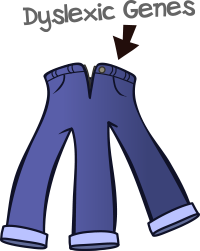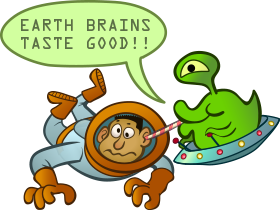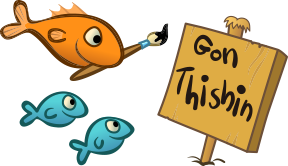
About Dyslexia

- Dyslexia is a specific learning difference that impacts on literacy, primarily reading, spelling, writing.
- Dyslexics process information differently.
- Dyslexia is a different way of thinking and a different way of learning.
For further information visit the British Dyslexia Association
Dyslexic genes

Dyslexia runs in families. When the dyslexic gene was first discovered it was called ‘1p’. After hearing this a dyslexic at the centre said “You mean to tell me that my brain is bigger than other people’s but it is only worth 1p?!!”
Its not all doom and gloom, thinking and learning differently can be an advantage. Many successful people are dyslexic. Albert Einstein, Richard Branson, Jamie Oliver, Whoopi Goldberg, Cher, Joanna Lumley, and Tom Cruise just to name a few.
Dyslexic skills
Dyslexia is often identified as a difference between your verbal ability and the written work you produce. Dyslexics are often good conceptual thinkers so often they move into careers like architecture, design, engineering or computers. Dyslexics can be very creative thinkers moving into jobs such as cooking, music, drama or media and the arts.
Many dyslexics have good spatial awareness and so may be good at games like chess or connect 4. But dyslexics can also be average thinkers. They aren’t always brilliant. You don’t have to be a genius to be a dyslexic. Most dyslexics are average – like everyone else!
Spaced-out

Astronauts have experienced temporary dyslexia. A long time spent in the weightlessness of space can mess up the parts of the brain that manage co-ordination (the cerebellum). This can affect the usually smooth movement of the eyes, making reading and spelling hard work.
Something Fishy

Some dyslexics take an Omega 3 supplement, which contains the essential fatty acids mostly present in fish oils. It creates a fatty membrane sheath covering the brain’s nerve cells, which is claimed to help synaptic links.
There are no dyslexic fish!
Move that baby
Another theory is that learning difficulties like dyslexia and dyspraxia are linked to a lack of movement when very young. It has been suggested that some children’s postural control reflexes will not develop correctly as part of the natural development process.
It is normal for babies to miss the crawling phase and this does not mean that a child will get dyslexia but some believe the theory that dyslexics, who never fully developed the correct reflexes as babies, can be helped by using special exercise routines, designed to copy movements made by the foetus and young babies.



